The past couple of years an increasing number of LSE academics started integrating blogging in their courses. This took various forms, from using the blog feature on Moodle as an added activity to creating individual blogs for students as part of a course summative assessment. One thing that all these projects shared is the rationale for using blogs in an educational context: encouraging student engagement, making learning more student-centred and diversifying assessment with the view to making it more relevant to the course and developing students’ transferable skills.
A good example of such initiative is Anthropology’s Dr Walker AN300 student blogs project. Dr Walker applied for a SPARK Grant last year in order to support his project to “develop the use of student blogs as one component of the summative assessment for AN300 Advanced Theory of Social Anthropology”.
Below is a summary of the project and its outcomes, with quotes form Dr Walker’s application and project report, whose full version can be found on his project page.
What was done
AN300 is an intensive reading course focusing on full-length books rather than journal articles. There are three ‘cycles’ per term, each devoted to a different book […] Each student was required to produce his/her own blog. […]Students were expected to make one post each week for the first two weeks of each book cycle (12 posts for the course overall). Every third week was dedicated to commenting on the posts of others. The final mark consisted of the average of each student’s best eight posts.[…]The posts were assessed weekly by a GTA who was also in charge of providing feedback.
Students also attended a session on writing for blog run by LTI at the beginning of their course.
Rationale
Developing students’ academic and life skills
The aim of this project was to encourage students to develop their own original ideas and critical responses to key texts in social anthropology, as well as to cultivate their capacity to respond thoughtfully and diplomatically to the ideas of others. Making regular blog entries was also meant to encourage students to keep abreast of the required readings for each week, partly in order to positively impact the overall quality of class discussions. The project was also intended to cultivate students’ digital literacy, providing them with training in an increasingly widespread form of disseminating information.
Diversifying assessment
[The course format] is sometimes described as an advanced reading group. This makes it ill suited to exams as a mode of assessment. The blogs, by contrast, allowed students to develop their own ideas about the books they were reading as they went along.
Students appreciated the opportunity the blogs provided […] to work in a medium other than an essay or exam.
Evaluation
In general, the trial can be considered a success. […] The posts that resulted were often highly original and creative. Students appreciated the opportunity the blogs provided to be more experimental with their ideas and arguments, and less formal in their writing. […] Having to write a post prior to class gave students an opportunity to critically reflect on the readings, and to bring to the class ideas they had developed in their blogs
Lessons learnt
Clarity was identified as a key area for improvement in the project, as its absence seems to have caused some frustration among students. The main aspects that were identified as critical were clear guidance and expectations, grading criteria and feedback on the blog posts.
It is also worth noting that it was the first year blogs were tried in the department. The fact that students were not (yet) familiar with this type of activity made it even more important to provide them with extra guidance.
Outcomes
You can find a detailed evaluation report on the project’s dedicated web pages. The report includes guidance given to students at the start of term along with marking criteria, and examples of student posts and comments.
If you are interested in using blogging as a teaching tool, check out our and TLC’s resources or get in touch to discuss your ideas.
This project was funded by LTI’s SPARK Grant. More info on similar teaching innovation projects and how to apply on our website.
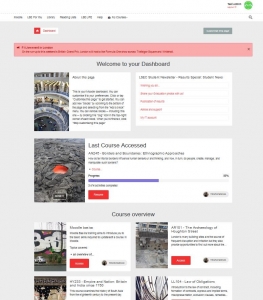







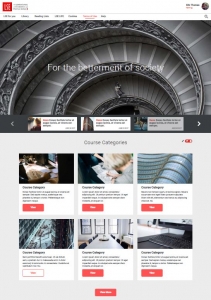
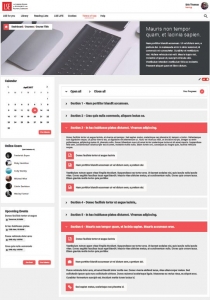
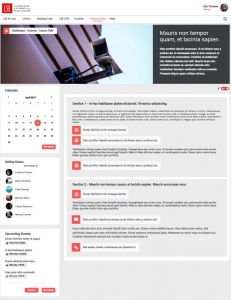
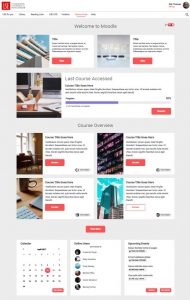
 LTI are working on getting the Moodle mobile app ready for 2017/18. The app can be downloaded from itunes or Google play and more information will be made available on our website over the summer.
LTI are working on getting the Moodle mobile app ready for 2017/18. The app can be downloaded from itunes or Google play and more information will be made available on our website over the summer.


 This academic year 6 projects were awarded a
This academic year 6 projects were awarded a 







